This January 2023, Humble News will be focusing on some environmental themes and practices from last year that we hope to see more advancements and progress this year. This month’s series will be called, the Green Spot Light and will cover 6 themes in the next 4 Humble News blog post that comes out every Wednesday.
First off, we’re taking a closer look at probably one of the more impactful themes that we need more of – An increase in Global Cooperatives.
As Angus Dean, a renowned Nobel Prize economist once said, “International cooperation is vital to keeping our globe safe, commerce flowing, and our planet habitable”. While all the themes and practices are equally important, we need global cooperation for a streamlined and efficient implementation to make the efforts more impactful.
Probably two of the most significant global cooperations last year that we can’t wait to see the countries roll out are the COP15 Global Biodiversity Framework and CBAM policies.
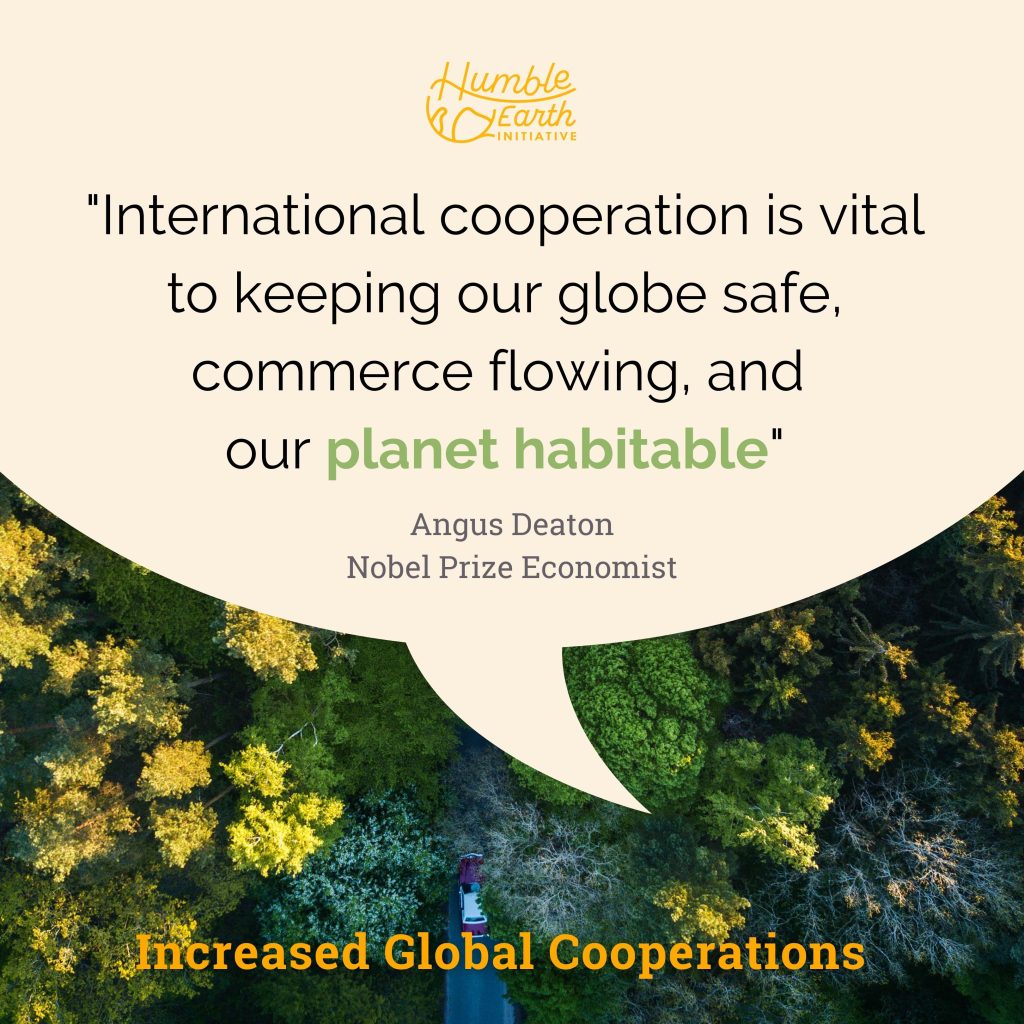
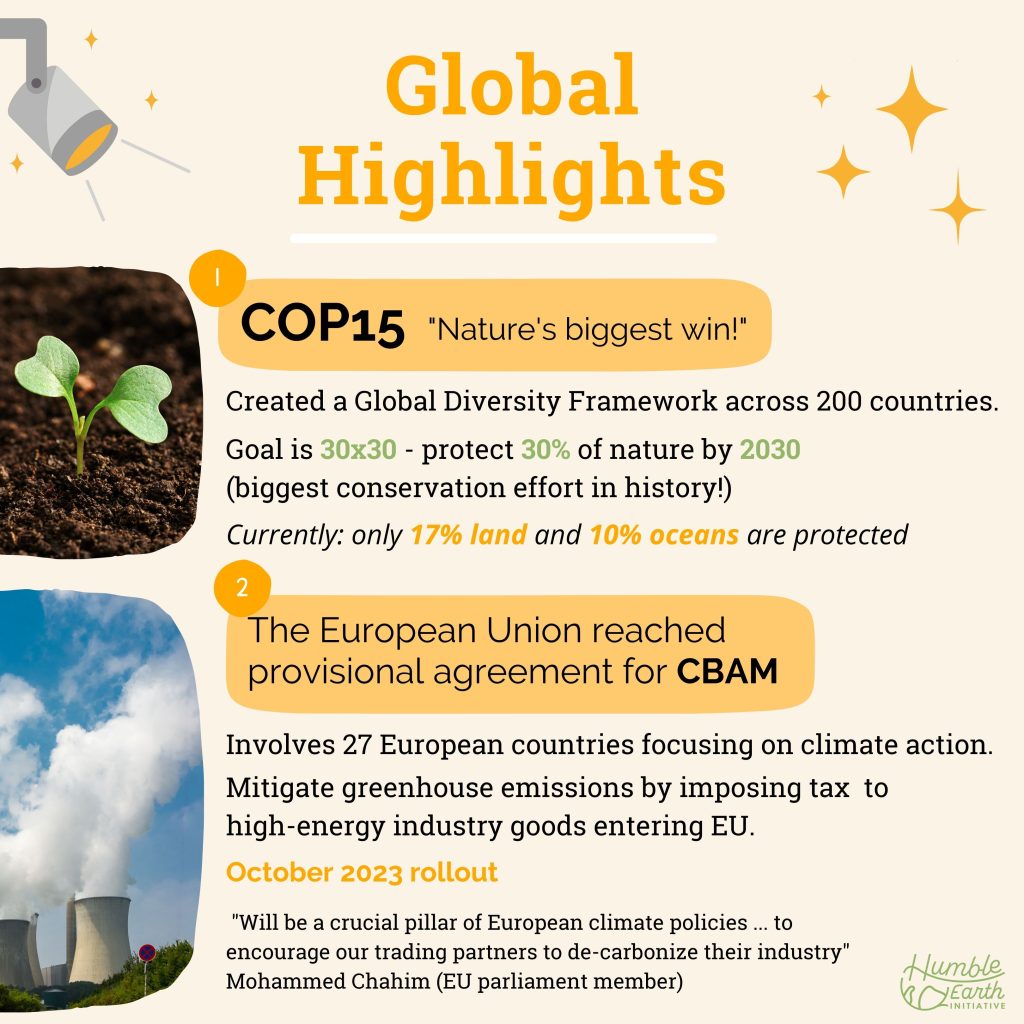
COP15 which has now been dubbed “Nature’s Biggest Win” has a goal of 30×30, which is to protect 30% of the Earth’s land and water by 2030. Truly this has been the biggest conservation effort in history that has been proposed and approved by a governing committee. This global initiative is also the biggest as it involves almost all the 200 countries in the world. The involvement of everyone is definitely needed given the optimistic goal. For perspective, currently, only 17% of our land and 10% of our oceans are protected, so there are definitely big moves to be made when countries adopt this Global Biodiversity Framework. The deal also includes a pledge to reform $500 billion of environmentally damaging subsidiaries and focuses on protecting species extinction with biodiversity at the heart of it.
CBAM (Carbon Border Adjustment Mechanism) on the other hand, is a deal within the European Union that has finally reached a provisional agreement for an October 2023 rollout. It involves 27 European countries (almost more than half of the countries in Europe) as a climate action effort to mitigate greenhouse emissions. This will be done by imposing a carbon dioxide tariff on the industrial import of “polluting goods”, targeting the highest polluting products first such as steel and cement. This CBAM scheme “will be a crucial pillar of European climate policies … to encourage our trading partners to de-carbonize their industry”, explains MEP Mohammed Chahim from the Socialists and Democrats Party.
So why are these initiatives and global cooperatives important in the grand scheme of things?
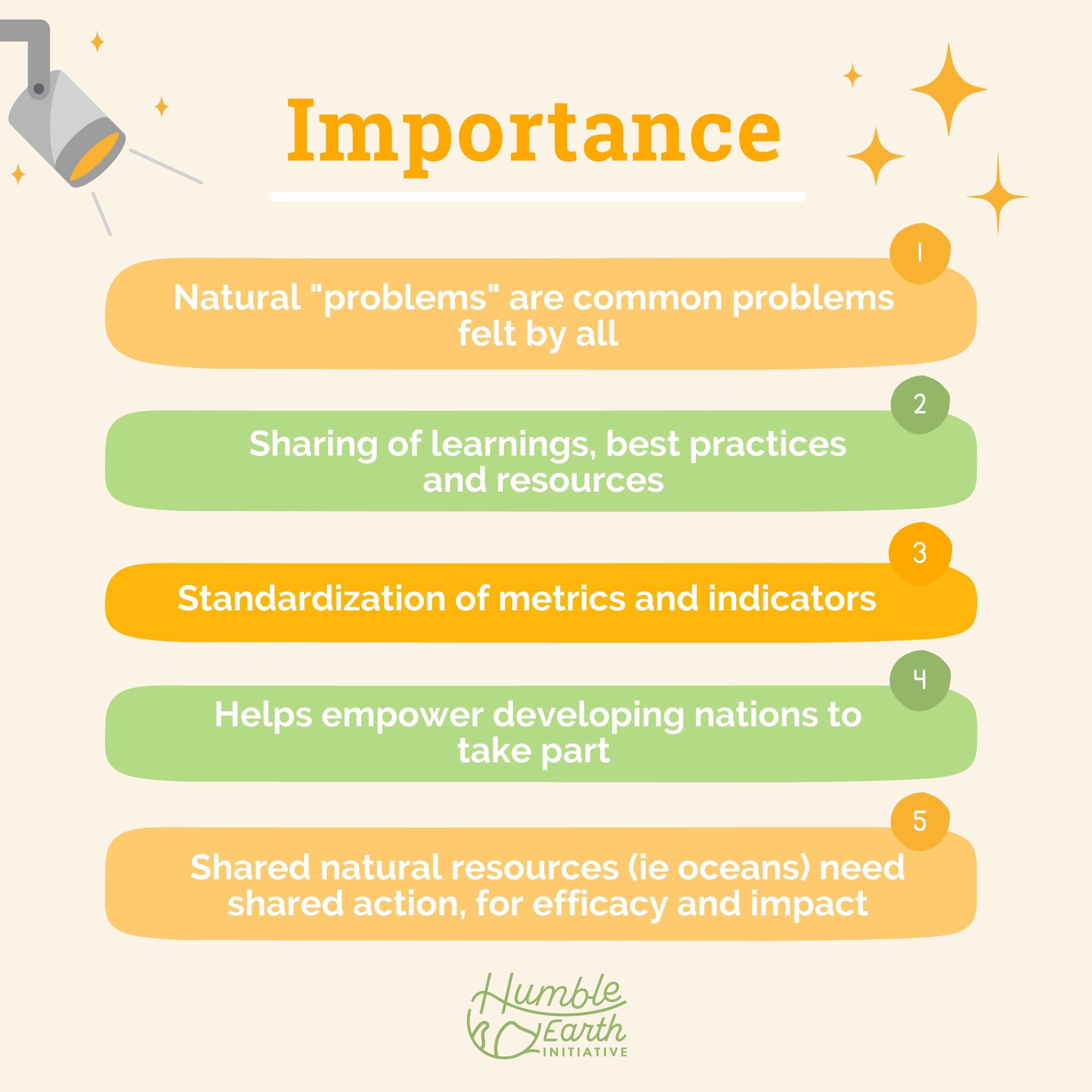
1. Natural “problems” are common problems felt by all. Such that, each country’s economic and environmental state will be affected by these treaties. Even how the politics and priorities of each country will need to reflect their commitment to these global efforts.
2. Sharing of learnings, best practices and resources are important for efficiency and better ways of working in terms of implementation. One country can specialize in one thing or has more resources of whatever is needed and can help the other countries in return for something they lack.
3. Standardization of metrics and indicators. What better way to measure success and efficacy but to standardize the metrics and indicators for success (or failures). Efforts can’t succeed or improve if no metrics are set in place to monitor it.
4. Helps empower developing nations to take part. Probably the most important as most countries are considered “developing” and simply have no capabilities to implement what is needed, so they will need the support of the more developed countries. Unsurprisingly, these developing countries are also the “richest” when it comes to natural resources, they just lack the finances and the technological advancements.
5. Shared natural resources (ie oceans) need shared action, for efficacy and impact.
Other global cooperatives and agreements to watch out for this year:
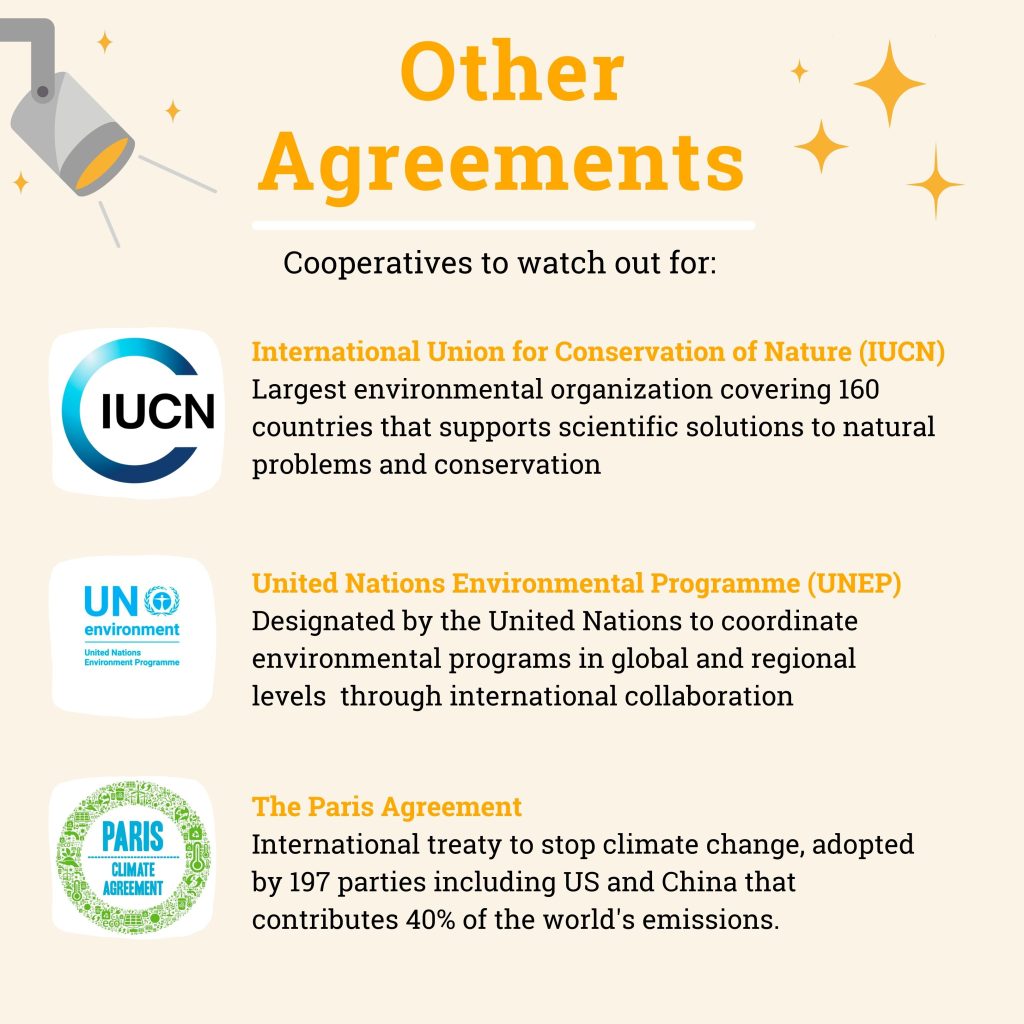
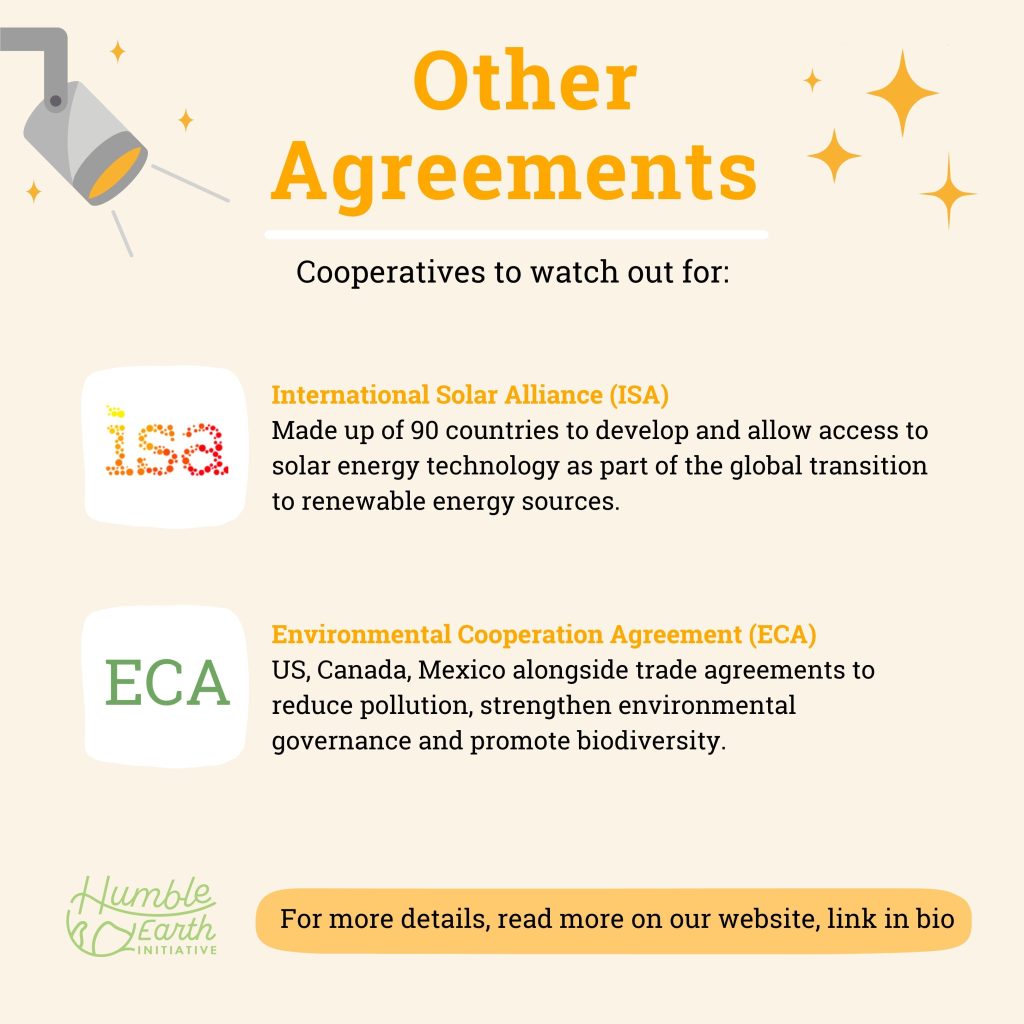
International Union for Conservation of Nature (IUCN)
Largest environmental organization covering 160 countries that supports scientific solutions to natural problems and conservation
United Nations Environmental Programme (UNEP)
Designated by the United Nations to coordinate environmental programs in global and regional levels through international collaboration
The Paris Agreement
International treaty to stop climate change, adopted by 197 parties including US and China that contributes 40% of the world’s emissions.
International Solar Alliance (ISA)
Made up of 90 countries to develop and allow access to solar energy technology as part of the global transition to renewable energy sources.
Environmental Cooperation Agreement (ECA)
US, Canada, Mexico alongside trade agreements to reduce pollution, strengthen environmental governance and promote biodiversity.
Have any questions or have topics in mind that you want to know more? Comment below or send us an email to know more at hello@humbleearthinitiative.com
Sources:
https://www.euronews.com/green/2022/12/19/nations-agree-landmark-deal-for-biodiversity-at-cop15-what-does-it-mean-for-nature
https://www.consilium.europa.eu/en/press/press-releases/2022/12/13/eu-climate-action-provisional-agreement-reached-on-carbon-border-adjustment-mechanism-cbam/
https://www.envirocoop.com
https://www.epa.gov/international-cooperation/agreement-environmental-cooperation-among-governments
https://www.consilium.europa.eu/en/press/press-releases/2022/12/13/eu-climate-action-provisional-agreement-reached-on-carbon-border-adjustment-mechanism-cbam/









Be the first to comment!